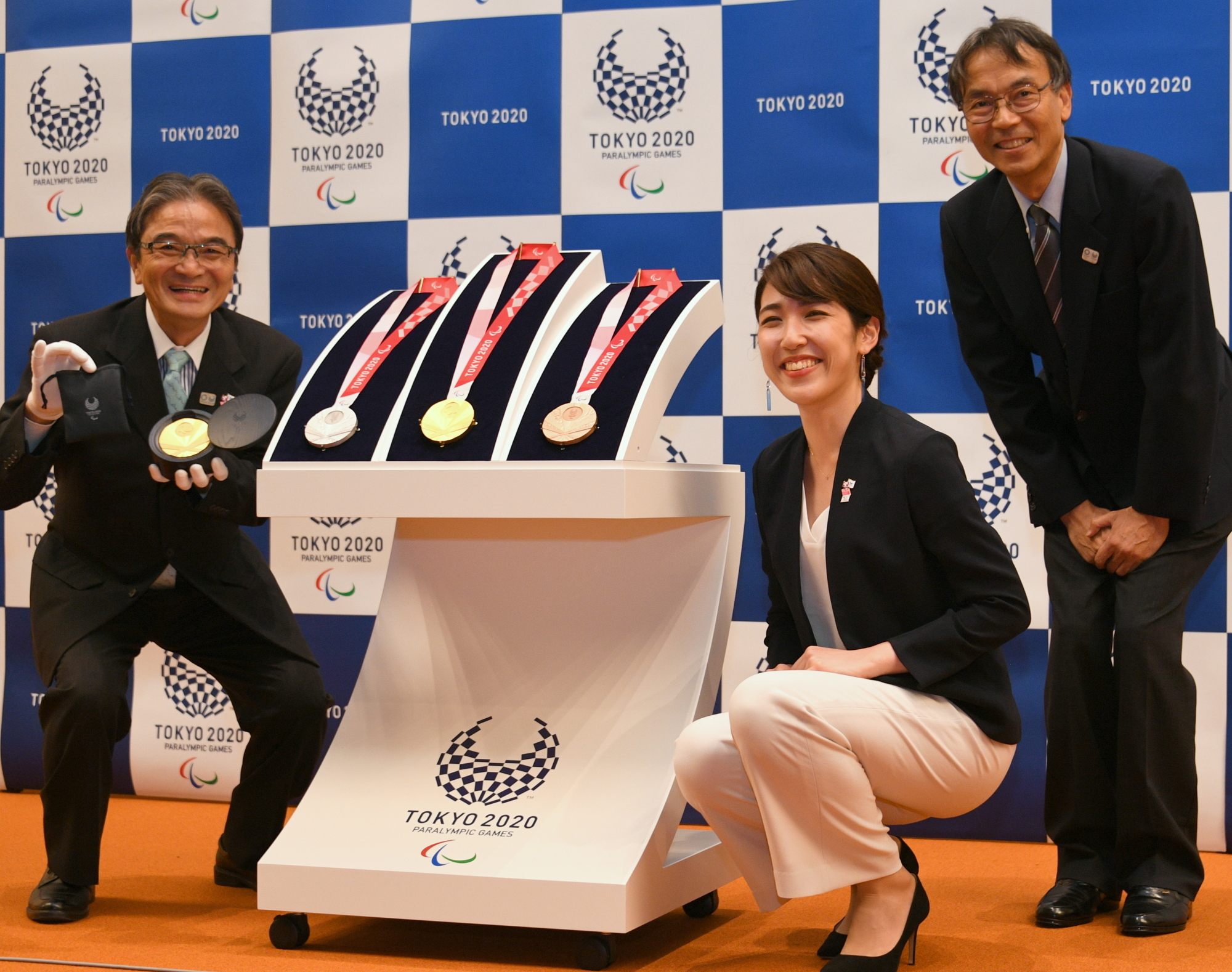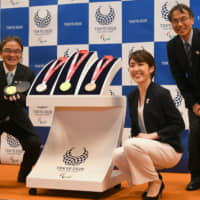The medals for next year's Tokyo Paralympics were revealed Sunday, exactly one year to the day before the games kick off in the Japanese capital.
The bronze, silver and gold medals, which for the first time can be distinguished by touch for those with visual disabilities, were presented to the public at an event to mark the countdown.
Designer Sakiko Matsumoto employed the motif of a spreading Japanese ogi fan, symbolizing both a breath of fresh air and a pivotal point that brings people together.
"I was looking for a motif that would be easily recognized as Japanese," Matsumoto told reporters. "Athletes are people who can influence the world ... and when you think of the games, the pivot will be the athletes."
On the reverse side of the medals, 10.7 millimeters deep at their thickest point, are designs of rocks, flowers, wood, leaves and water — portraying nature in Japan — in different textures.
To help visually impaired athletes, each medal has between one and three indentations around the edge, with gold having one, silver two and bronze three.
"I didn't want them just to look beautiful on the outside but also to be things that are recognizable when touched; a universal design," Matsumoto said. "My mind went blank when I got the call saying my design had won."
The medals were created entirely from metals recycled from mobile phones and other electronic devices, just as the Olympic medals for next year will be.
Approximately 5,000 medals will be produced using metal collected from small recycled electronic devices. These were donated by the Japanese public in a nationwide campaign between April 2017 through March this year.
Chief Cabinet Secretary Yoshihide Suga, Tokyo Gov. Yuriko Koike and Tokyo Games organizing committee President Yoshiro Mori all attended the event before Mitsunori Torihara, the president of Japan Paralympics Committee, made the announcement that Aug. 25 will be named Japan Paralympic Day from next year.
"I hope understanding about the paralympic sports will deepen across the nation, and the symbiosis of a society with those with and without disabilities will accelerate," he said.
Tokyo last hosted the games in 1964, and will be the first city to have hosted the Summer Paralympics twice.
Japan is aiming for 22 gold medals — a result that would be its best ever— despite finishing with none in Rio de Janeiro four years ago.




